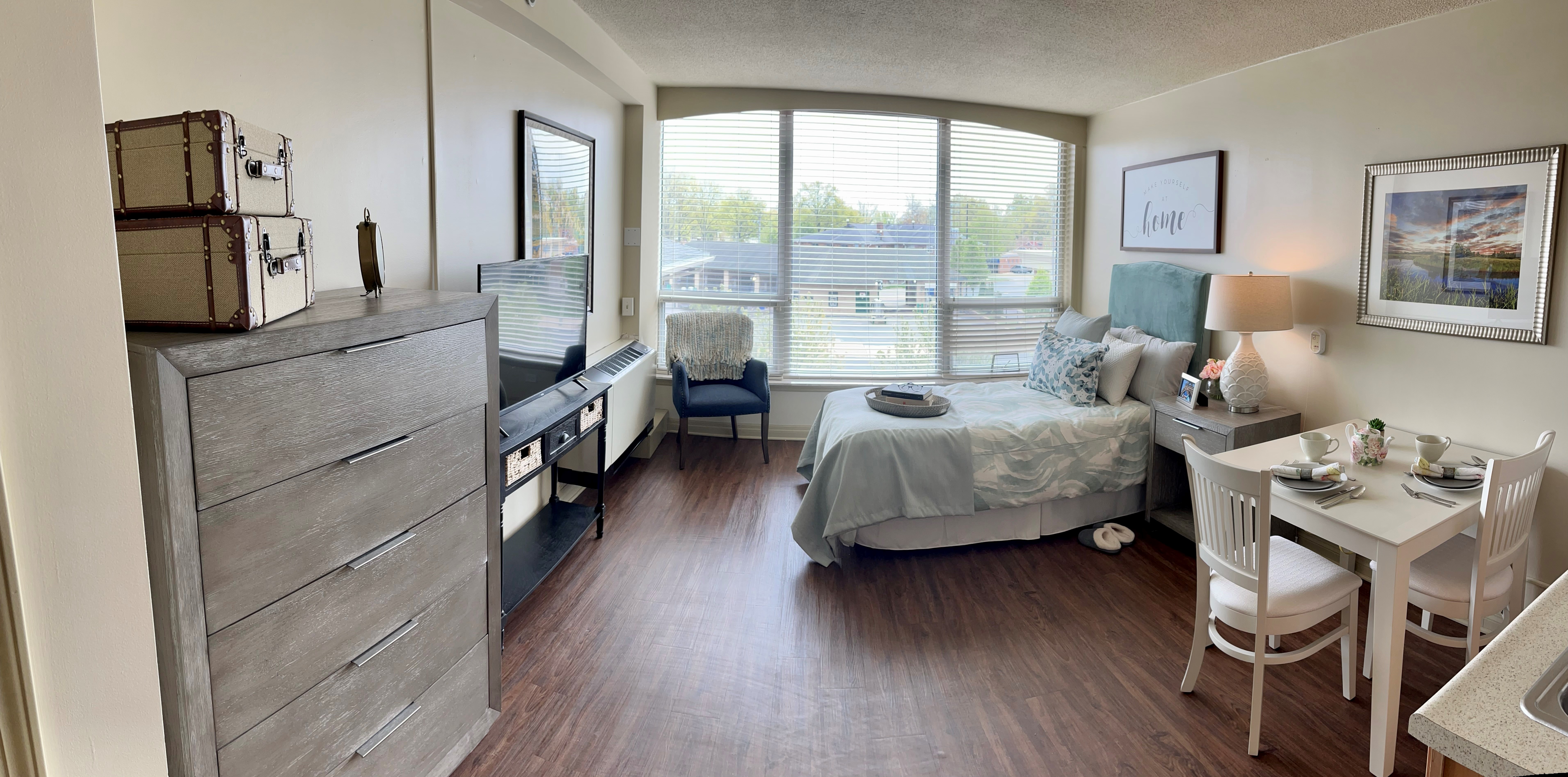Charlotte Memory Care: Quality Senior Citizen Coping With Memory Care Know-how
Developing a Safe and Encouraging Environment: In-Home Memory Care Fundamentals
Establishing a caring and safe and secure environment for people requiring at home memory treatment is extremely important to their wellness and lifestyle. From guaranteeing security within the home to employing efficient interaction strategies and applying memory-friendly layout aspects, there are crucial components that contribute to an all natural treatment approach. By focusing on producing a supportive environment that deals with the unique needs of those with memory problems, caregivers can significantly improve the day-to-day experiences of their enjoyed ones.

Safe Living Atmosphere
When giving in-home memory care for people with cognitive disabilities,Developing a safe and secure and hazard-free living atmosphere is paramount. Ensuring the safety of the specific with memory loss is essential to stop mishaps and promote a sense of well-being. One important element of creating a safe living atmosphere is to eliminate any type of prospective hazards that could result in slips, journeys, or falls. This consists of safeguarding loosened carpets, ensuring ample illumination in all areas of the home, and keeping pathways free from clutter.
In addition, it is vital to install safety attributes such as grab bars in bathrooms and hand rails along stairs to offer assistance and protect against mishaps. Furthermore, using innovation such as activity sensing units and alarms can inform caretakers if the individual wanders or is in distress. Producing a risk-free living environment likewise includes applying strategies to stop wandering, such as utilizing door alarms or locks to restrict accessibility to dangerous areas. By focusing on safety actions and getting rid of possible hazards, caregivers can offer a helpful and protected environment for people with cognitive problems obtaining in-home memory care.
Reliable Communication Strategies
Carrying out tailored communication techniques is necessary in promoting meaningful communications with individuals with cognitive impairments in the context of at home memory treatment. Efficient interaction plays a vital duty in creating an encouraging atmosphere that enhances the health and quality of life for individuals with memory issues. When communicating with somebody experiencing cognitive decline, it is essential to utilize clear and basic language, keep a calmness and positive tone, and provide aesthetic hints to aid comprehension.
One key strategy is to exercise energetic listening, showing empathy, patience, and regard throughout discussions. Non-verbal hints such as face expressions and body movement can likewise assist share understanding and assistance. In addition, making use of reminiscence treatment by utilizing or discussing previous experiences music and art can use lasting memories, stimulating connections and boosting engagement.
Additionally, integrating regular routines and consistent interaction patterns can give a sense of experience and safety for individuals with memory impairments. By executing these communication techniques, caretakers can develop significant links and advertise a sense of comfort and count on the in-home memory treatment setting.
Memory-Friendly Style
Provided the value of creating a supportive environment for people with memory concerns with efficient interaction methods, the consolidation of memory-friendly style components in the home becomes essential in enhancing their daily experiences and overall health. Memory-friendly style concentrates on improving safety, comfort, and self-reliance for individuals with cognitive problems. Basic adjustments can make a significant distinction, such as making use of contrasting colors to enhance visibility and lower complication, click reference incorporating clear signage to assist navigation, and decreasing clutter to stop sensory overload.
Including familiar components from the individual's past, such as individual photos or favorite products, can evoke favorable memories and create a feeling of familiarity. Furthermore, guaranteeing adequate lights degrees, mounting grab bars in restrooms, and carrying out non-slip flooring can help avoid drops and injuries. Creating a calming and calming atmosphere with making use of familiar fragrances, soft appearances, and peaceful sounds can likewise promote leisure and decrease frustration. By incorporating these memory-friendly style elements, caregivers can give a safe and supportive space that enables people with memory issues to preserve their independence and top quality of life.
Daily Regimen Preparation
When establishing an everyday regimen for individuals with memory problems, careful preparation is important to support their cognitive function and overall health. Developing a structured routine can help minimize anxiety, complication, and disorientation usually experienced by those with memory problems. Begin by integrating acquainted tasks that align with the individual's preferences and passions. Uniformity in everyday routines can provide a complacency and security, helping in the conservation of cognitive capacities.
It is vital to enable adequate time for every task, lessening the requirement to hurry and staying clear of prospective aggravation. Easy jobs like dish times, individual treatment, medicine monitoring, and exercise ought to be integrated right into the routine. In addition, incorporating regular periods of remainder and leisure can avoid fatigue and frustration. Flexibility is key, as some days might need modifications based upon the individual's state of mind and power levels. Regularly examining and adapting the everyday timetable will assist ensure its performance in advertising a comforting and favorable environment for individuals with memory obstacles.
Assistance System Implementation
Developing a durable network of encouraging individuals plays a pivotal role in enhancing the top quality of treatment and health for people calling for memory support. Relative, friends, healthcare professionals, and neighborhood sources can all contribute to producing a strong support group. Communication amongst these people is necessary to make certain that the needs of the specific with memory challenges are met effectively.
Relative are usually the key caregivers and create the foundation of the support system. They give day-to-day treatment, emotional support, and companionship. It is essential for household participants to seek aid and reprieve when required to stop burnout and make sure the most effective feasible look after their loved one.
Along with family members assistance, including health care anonymous professionals such as doctors, nurses, and specialists can supply specialized treatment and advice. These specialists can provide important insights, clinical advice, and assistance in handling the individual's problem.

Conclusion
In final thought, producing a supportive and safe environment for individuals with memory care demands is essential for their health. By developing a secure living environment, making use of effective interaction strategies, integrating memory-friendly style elements, planning daily routines, and executing a strong support group, caretakers can assist improve the lifestyle for those with memory loss. These necessary parts interact to develop a nurturing and equipping setting that advertises independence and boosts total high quality of life.
Creating a hazard-free and secure living atmosphere is extremely important when offering in-home memory treatment for people with cognitive disabilities. By prioritizing safety measures and eliminating potential threats, caregivers can provide a secure and supportive atmosphere for individuals with cognitive impairments getting at home memory treatment.
Developing a durable network of helpful individuals plays an essential role in enhancing the quality of care and health for individuals calling for memory support - Charlotte Memory Care. Interaction amongst these people is essential to ensure that the demands of the specific with memory obstacles are met efficiently
